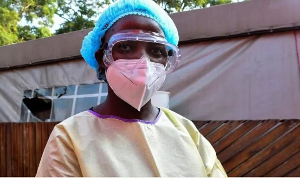A Heritage newspaper investigation has revealed that, most commercial drivers in the Eastern Region have turned their vehicles into hearse using them to carry dead bodies without precaution thereby posing health hazard to passengers who sit in such vehicles as well as goods they normally carry.
Investigations in most hospitals in the region, Atibie Government hospital, Nkawkaw Holy Family Hospital, Agyakwah hospital at Nkawkaw, St Dominic hospital at Akwatia, Kyebi hospital, Koforidua and Oda Government hospitals and a host of them with mortuaries, revealed that many people prefer using the commercial vehicles in conveying their dead relatives rather than the hearse which is licensed to engage in such activities.
One Kofi Asante who hired a Tico taxicab to convey his dead father from Agykwa hospital at Nkawkaw told newsmen that, it was far cheaper to engage the services of the commercial vehicles than the hearse.
I used a commercial vehicle in bringing the body to the mortuary when a hearse driver charged me ¢400,000 (GH 40) but the commercial vehicle collected ¢250,000 (GH 250). The taxi driver, who refused to give his name, saw nothing wrong in carrying a dead body and the danger it posed to passengers who would use the vehicle afterwards.
He said, after conveying the body, he would use either a kerosene or dettol to clean the seat if there was any bad odour and would not do so when there was no such bad odour.
A number of medical personnel who spoke to newsmen described the situation as very dangerous as the users of the hearse have been trained to take certain precautionary measures to prevent any danger in carrying dead bodies.
The vehicles have also been designed in such a way that passengers are not allowed to sit at the place where dead bodies are put. Drivers of the hearse too have been given special medicines and other detergents in cleaning the vehicles, which are not known to commercial drivers.
A hearse driver at Nkawkaw, Yaw Owiredu confirmed the activities of commercial drivers and said, if care was not taken many innocent people who sit in such vehicles risk contracting diseases since such vehicles are not protected.
General News of Monday, 6 August 2007
Source: Heritage
Taxis Now Used In Carrying Corpses
Opinions















